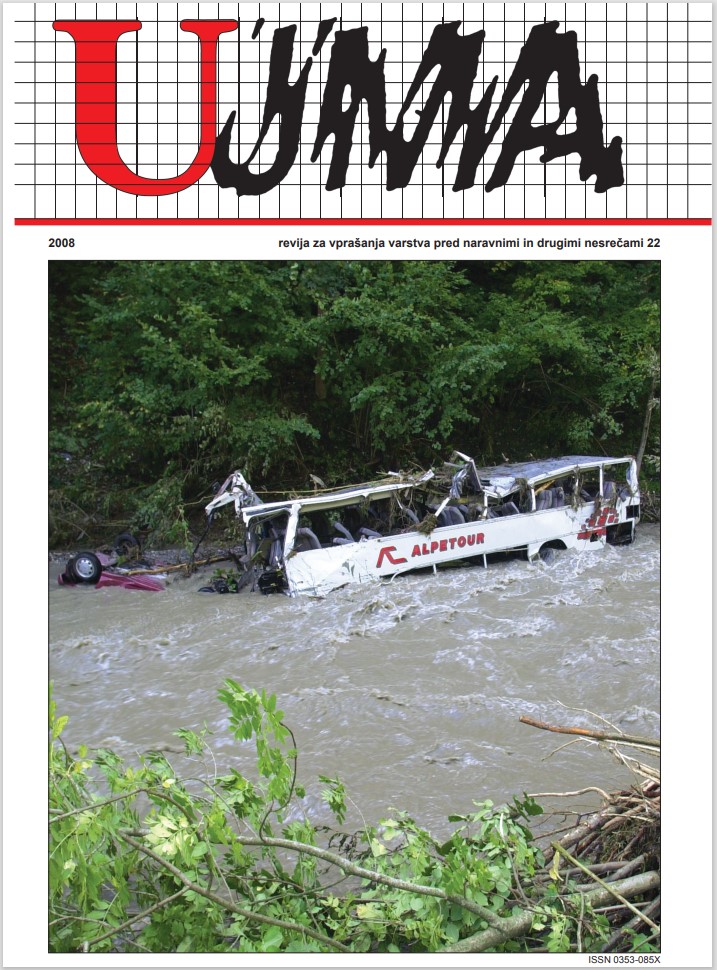MAJOR FINDINGS FROM THE IPCC FOURTH ASSESSMENT REPORT “CLIMATE CHANGE 2007”
Abstract
Climate change is a very complex issue: policymakers need an objective source of information about the causes of climate change, its potential environmental and socio-economic consequences and the adaptation and mitigation options to respond to it. This is why WMO and UNEP established the Intergovernmental Panel on Climate Change (IPCC) in 1988. The IPCC is a scientific body: the information it provides through its reports is based on scientific evidence and reflects existing viewpoints within the scientific community. Because of its intergovernmental nature, the IPCC is able to provide scientific, technical and socio-economic information in a policy-relevant but policy neutral way to decision-makers. The IPCC provides its reports at regular intervals. The Fourth Assessment Report “Climate Change 2007” was finalized in 2007. Some of the major findings from this report are presented in this article. It is shown that climate change, if unmitigated, can have serious implications for the economic well-being of human society and also that global efforts to address the problem remain weak and inadequate, even as changes in climate become more serious.
References
Barker, T., I. Bashmakov, L. Bernstein, J. E. Bogner, P. R. Bosch, R. Dave, O. R. Davidson, B. S. Fisher, S. Gupta, K. Halsnæs, G. J. Heij, S. Kahn Ribeiro, S. Kobayashi, M. D. Levine, D. L. Martino, O. Masera, B. Metz, L. A. Meyer, G.-J. Nabuurs, A. Najam, N. Nakicenovic, H.-H. Rogner, J. Roy, J. Sathaye, R. Schock, P. Shukla, R. E. H. Sims, P. Smith, D. A. Tirpak, D. Urge-Vorsatz, D. Zhou, 2007. Technical Summary. In: Climate Change 2007: Mitigation. Contribution of Working Group III to the Fourth Assessment Report of the Intergovernmental Panel on Climate Change [B. Metz, O. R. Davidson, P. R. Bosch, R. Dave, L. A. Meyer (eds)], Cambridge University Press, Cambridge, United Kingdom and New York, NY, USA.
IPCC, 2007 a. Climate Change 2007: The Physical Science Basis. Contribution of Working Group I to the Fourth Assessment Report of the Intergovernmental Panel on Climate Change [Solomon, S., D. Qin, M. Manning, Z. Chen, M. Marquis, K.B. Averyt, M. Tignor and H.L. Miller (eds.)]. Cambridge University Press, Cambridge, United Kingdom and New York, NY, USA, 996 pp.
IPCC, 2007 b. Climate Change 2007. Synthesis Report. Contribution of Working Groups I, II and III to the Fourth Assessment Report of the Intergovernmental Panel on Climate Change [Core Writing Team, Pachauri, R.K and Reisinger, A. (eds.)]. IPCC, Geneva, Switzerland, 104 pp.
NOAA, 2008. The NOAA ANNUAL GREENHOUSE GAS INDEX (AGGI). NOAA Earth System Research Laboratory, Boulder (http://www.esrl.noaa.gov/gmd/aggi/)
Parry, M. L., O. F. Canziani, J. P. Palutikof and Co-authors, 2007. Technical Summary. Climate Change 2007: Impacts, Adaptation and Vulnerability. Contribution of Working Group II to the Fourth Assessment Report of the Intergovernmental Panel on Climate Change, M.L. Parry, O. F. Canziani, J. P. Palutikof, P. J. van der Linden and C. E. Hanson, Eds., Cambridge University Press, Cambridge, UK, 23–78.
Stern, N., 2006. The Economics of Climate Change. The Stern Review. Cambridge University Press. Available for download at http://www.hm-treasury.gov.uk/index.cfm.
Schwartz, P. and D. Randall, 2003. An Abrupt Climate Change Scenario and Its Implications for United States National Security. Pentagon report Pentagon, Washington D.C. (www.ems.org/climate/pentagon_ climatechange.pdf).
WBGU, 2008. German Advisory Council on Global Change (WBGU): Climate Change as a Security Risk. Springer-Verlag Berlin, Heidelberg, New York, 2008.
Downloads
Published
Issue
Section
License

This work is licensed under a Creative Commons Attribution-NonCommercial-NoDerivatives 4.0 International License.
The articles are made available to the public under Creative Commons Attribution-NonCommercial-NoDerivatives 4.0 International (CC BY-NC-ND 4.0).


